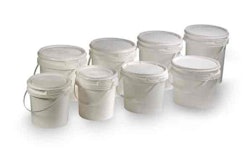
Many major corporations now have a corporate sustainability department. Sustainability covers much more than environmental issues alone. It also encompasses economic (e.g., codes of conduct, corruption, and bribery) and social (e.g., labor practices, talent attraction, and retention) issues. In fact, there is a Dow Jones Sustainability Index that rates companies on their sustainable business practices (see www.sustainability-indexes.com). One of the reasons that this index was established is that business decisions with long-term impact on overall sustainability are being made more frequently. These decisions may reduce short-term earnings for a company, especially if its competitors have not yet embarked on the journey to sustainability wholeheartedly. Today, more and more companies are realizing that by making sustainability an integral part of their business platform, they can maximize profits in the long-term. The concept is no longer about just sprucing up one’s corporate image; it’s much more fundamental than that.
So in examining the issue of packaging sustainability, it’s important to realize that packaging is not really being singled out. However, it is a very visible piece of the equation as consumers deal daily with packaging waste. We believe that one of the issues driving U.S. consumer product companies and retailers to address packaging sustainability is the concern that if the industry does not act on reducing packaging waste, governmental agencies (federal, state, and/or local) will by establishing guidelines and possibly taxes.
In Europe, Germany has had their “green dot” program for over a decade. Many other European companies have adopted their own programs to cut down on packaging waste through source reduction and recycling. Some of these programs have been more successful than others in reaching their goals (and we could write another column on that some day). However, the bottom line is that depending on the specific program, retailers and/or consumer packaged goods companies can be burdened by the requirement to collect used packages for recycling and also taxes/deposit fees. In addition, bans can and have been placed on specific materials.
Oakland, CA just passed a ban on polystyrene foam packaging (e.g., trays and clamshells) in food establishments. It went into effect on January 1, 2007. They want to encourage the use of “bio-materials” that decompose in the environment such as paperboard based products and bio-degradable plastics. To date, Oakland has not banned plastics other than polystyrene foam packaging. San Francisco has reportedly passed similar legislation that is scheduled to go into effect on June 1, 2007. Other municipalities are looking at more bans on packaging materials, and the entire area of bans and government intervention is scary to say the least.


























